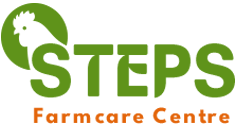Steps to Start Poultry Farming in Kenya

- Research and Planning: Understanding the Kenyan poultry industry, including market demands and regulations, is crucial. Decide whether to focus on broiler (meat production) or layer (egg production) farming. Assess the financial requirements and potential profitability.
- Training and Education: Seek training on poultry farming practices, management, and disease prevention from local agricultural institutions and experienced farmers.
- Business Plan Development: A comprehensive business plan should include goals, target market, production system, marketing strategies, and financial projections.
- Land and Infrastructure: Acquire suitable land, focusing on accessibility, market proximity, and utilities availability. Construct poultry housing with adequate ventilation, space, and predator protection.
- Equipment and Supplies: Procure necessary equipment such as feeders, waterers, incubators, and ensure a reliable source of quality poultry feed and medications.
- Chick or Egg Procurement: Choose a reputable supplier for day-old chicks or hatching eggs, prioritizing breed, health, and genetic quality.
- Management Practices: Implement good practices in feeding, watering, temperature control, biosecurity, and waste management.
- Marketing and Sales: Develop a marketing strategy, identifying potential buyers like local markets, wholesalers, and restaurants.
Types of Poultry Farming
- Broiler Farming: Focuses on raising chickens for meat, requiring proper housing, nutrition, and health management.
- Layer Farming: Involves raising chickens for egg production, necessitating well-designed housing with ventilation and lighting.
- Dual-Purpose Chicken Rearing: Farmers raise chickens for both meat and egg production, selecting breeds for quality meat and reasonable egg production.
Key Considerations
- Location: Choose a location with good access to markets and necessary utilities.
- Breeds: Select suitable breeds based on your target market and environmental conditions.
- Feeding and Nutrition: A balanced diet is crucial for poultry health and productivity.
- Disease Control: Implement biosecurity measures and work with veterinarians for disease prevention.
- Market Opportunities: Explore local and international markets for selling poultry products.
Challenges in Poultry Farming
Like any agricultural venture, poultry farming comes with its set of challenges, including disease management, market fluctuations, and the need for constant technological updates and best practices adherence.
Steps Farmcare Centre in Nairobi, Kenya
Steps Farmcare Centre, located at Mfangano Street, Terry House, Rainbow Hotel building, 3rd floor, room 138 in Nairobi, is a valuable resource for poultry farmers in Kenya. They offer a wide range of poultry equipment, including egg-related products, making them an excellent partner for both novice and experienced poultry farmers. You can contact them at 0704 874427 for more information on their products and services.
Embarking on a poultry farming venture in Kenya requires dedication, continuous learning, and a keen eye for detail. With proper planning and adherence to best practices, it can be a profitable and sustainable business.
Disclaimer: The information provided in this blog is for general informational and educational purposes only. The content is not intended to be a comprehensive guide or a substitute for professional advice. While efforts have been made to ensure the accuracy and timeliness of the information, the field of poultry farming is subject to changes in practices, standards, and regulations. Therefore, readers are encouraged to consult with local agricultural experts and authorities for specific advice and guidelines tailored to their individual circumstances. The references and resources mentioned are a starting point for further exploration and should not be considered an endorsement of any particular method, practice, or product. The author and publisher of this blog disclaim any liability in connection with the use of this information.


